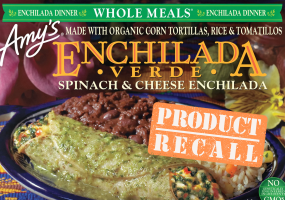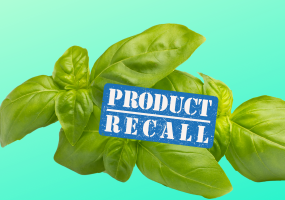The European Union has declared war on the United States in name of cheese, claiming that American-made cheese cuts into sales and the identity of European made cheese.
According to the Associated Press, the EU said it wants to ban the use of European names like Parmesan, feta and Gruyere on cheeses made in the United States; it added that the American-made versions of these cheeses are inferior, and undermine the quality of their European counterparts.
Errico Auricchio, who produced cheese with his family in Italy until he brought his trade to the United States more than 30 years ago, told the AP that he has no idea what he would call his Parmesan if he was forced to change the name.
"I Can't Believe It's Not Parmesan," Auricchio joked.
The Europeans, offended that Americas put dried processed "cheese" in the green shakers on dinner tables and label it "parmesan," are arguing that certain cheeses can only earn their names if they are made in their namesake locations.
For example, Parmesan should be used only for cheese made in Parma, Italy and feta cheese should only be for cheese made in Greece. Feta is not a place, but the EU argues it "is so closely connected to Greece as to be identified as an inherently Greek product."
"We have invested years and years making these cheeses," Auricchio said. "You cannot stop the spreading of culture, especially in the global economy."
The U.S. dairy industry producers, cheese markers and food companies, like Kraft, are is not happy with the EU's declaration and say that it would poorly affect the $4 billion domestic cheese industry and confuse consumers.
"It's really stunning that the Europeans are trying to claw back products made popular in other countries," said Jim Mulhern, president of the National Milk Producers Federation, which represents U.S. dairy farmers, in a statement.
A group of 55 U.S. senators found the EU's request unreasonable. Led by New York Senator Charles Schumer, D-N.Y., and Pennsylvania Senator Patrick Toomey, R-Pa., the group wrote to U.S. Trade Representative Michael Froman and Agriculture Secretary Tom Vilsack urging them not to agree to any such proposals by the EU.
"Muenster is Muenster, no matter how you slice it," Schumer told the AP.
The EU has not laid out a public proposal for the ban or mention what exactly it is proposing. European Commission spokesman Roger Waite said nothing more than how the question "is an important issue for the EU."
The AP reported that other products with traditional ties to European countries could also be affected include bologna, Black Forest ham, Greek yogurt, Valencia oranges and prosciutto, among other foods.
"Such restrictions could not only be costly to food makers, but also potentially confusing for consumers if the labels of their favorite products using these generic names were required to change," says Kraft spokesman Basil Maglaris.
Canada and Central America have recently agreed to similar demands from the EU in restricting European cheese names to those from Europe.









